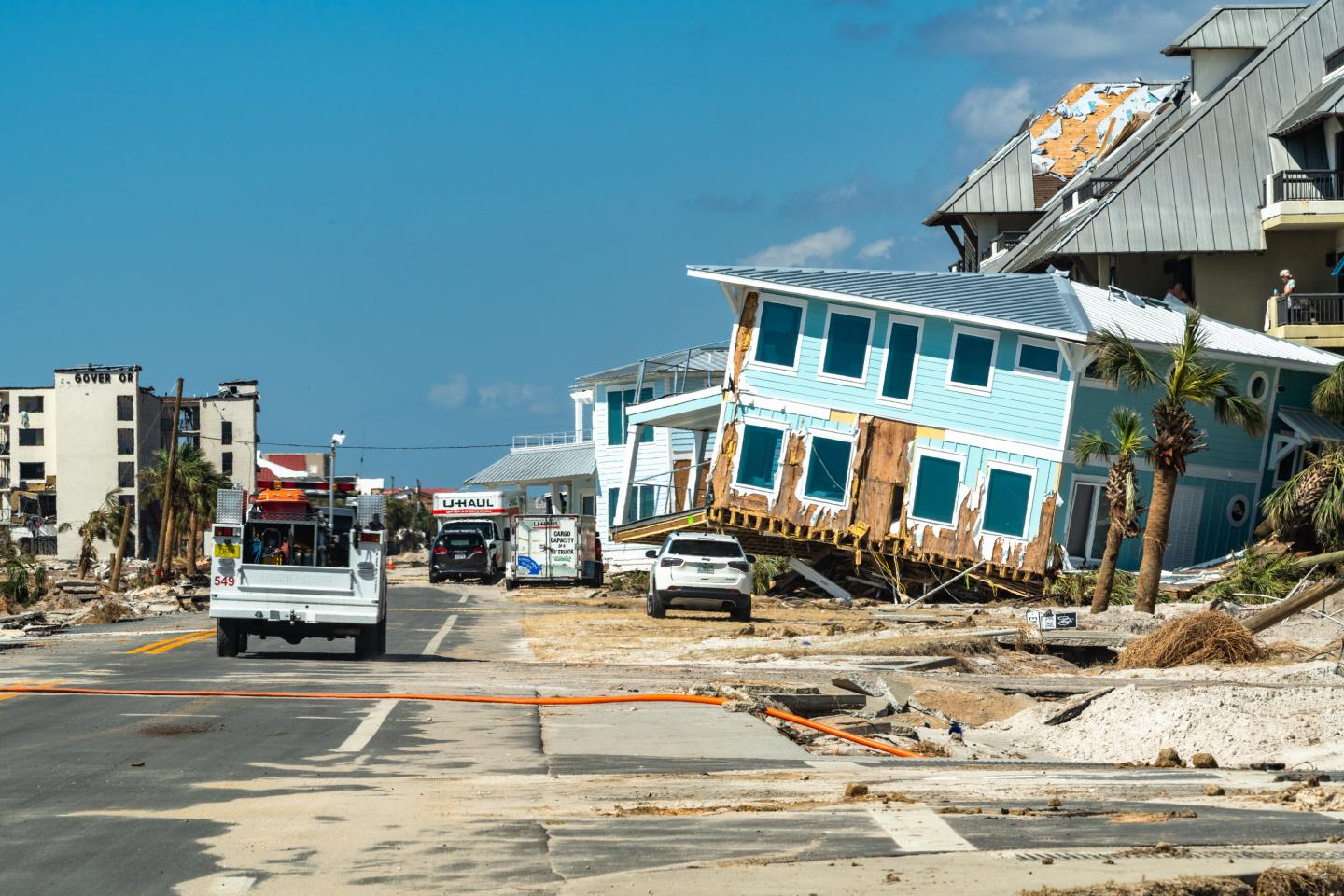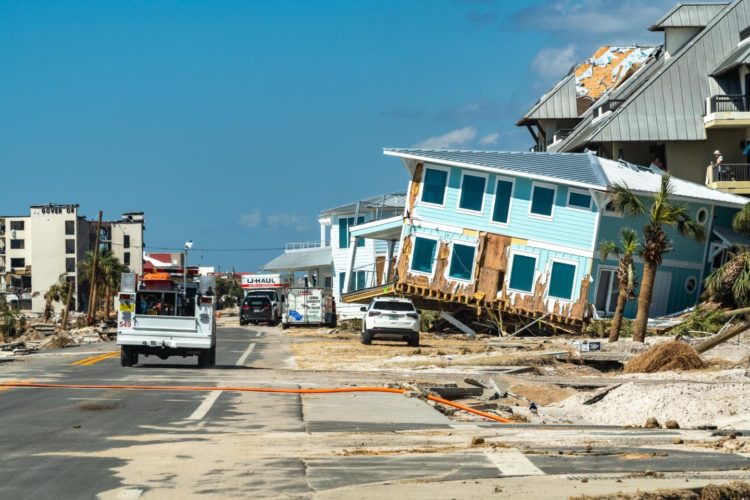
Credit: K.C. Wilsey, FEMA
A new study by researchers at the Niels Bohr Institute, University of Copenhagen, Aslak Grinsted, Peter Ditlevsen and Jens Hesselbjerg shows that hurricanes have become more destructive since 1900, and the worst of them are more than 3 times as frequent now than 100 years ago. A new way of calculating the destruction, compensating for the societal change in wealth, unequivocally shows a climatic increase in the frequency of the most destructive hurricanes that routinely raise havoc on the North American south- and east coast. The study is now published in PNAS.
Climate change used to be obscured by the statistical uncertainty
The traditional way of calculating hurricane damage, in order to be able to compare hurricanes and follow their development over time, was to survey the subsequent cost of the damage done by each hurricane. In other words, what would a hurricane from the 1950s cost, if it made landfall today? Using this method, a typical find is that the majority of the rising tendency in damage can be attributed to the fact that there are more of us and we are more wealthy, and there is quite simply more costly infrastructure to suffer damage. But evidence of a climatic change in destructive force by hurricanes has been obscured by statistical uncertainty.
Hurricanes are becoming bigger, stronger and more dangerous – an improved calculation method now shows a clear tendency
Aslak Grinsted has calculated the historical figures in a new way. Instead of comparing single hurricanes and the damage they would cause today, he and his colleagues have assessed how big an area could be viewed as an “area of total destruction”. Meaning how large an area would you have to completely destroy in order to account for the financial loss. Simultaneously, this makes comparison between rural areas and more densely populated areas like cities easier, as the unit of calculation is now the same: The size of the “area of total destruction”.
The climate signal in the new method has suddenly become apparent
In previous studies it proved difficult to isolate the “climate signal”. The climate signal should be understood as the effect climate change has had on hurricane size, strength and destructive force. It lay hidden behind variations due to the uneven concentration of wealth and it was statistically uncertain whether there was anytendency in the destruction. But with the new method this doubt has been eradicated. The weather has indeed become more dangerous on the south- and east coast of the USA. Furthermore, the result obtained by the research team has turned out to be more congruent with the climate models we use to predict and understand the development in extreme weather. It fits with the physics, quite simply, that global warming has the effect that there is an increase in the force released in the most extreme hurricanes.
###
Media Contact
Aslak Grinsted
[email protected]
45-31-38-07-16
Related Journal Article
http://dx.





